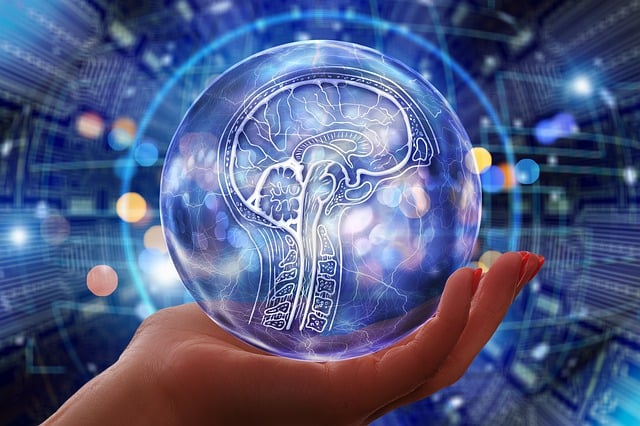Table of Contents
This article explores the multifaceted dimensions of Artificial Intelligence (AI), including its capabilities, ethical considerations, applications, challenges, and future prospects.
Understanding the Basics of AI
Artificial Intelligence (AI) is the simulation of human intelligence processes by machines, including learning, reasoning, and self-correction. It encompasses various technologies like machine learning and deep learning. AI&8217;s evolution is driven by data availability, advanced algorithms, and computing power. Significant achievements like IBM&8217;s Deep Blue and Google&8217;s AlphaGo demonstrate AI&8217;s expanding capabilities.
Real-world Applications of AI
AI is revolutionizing various fields, including healthcare, finance, smart cities, automotive, and customer service. It aids in diagnosing diseases, personalizing treatments, and predicting patient outcomes. In finance, AI is used for fraud detection, risk management, and automated trading. In smart cities, AI improves energy consumption, traffic flow, and public safety. In the automotive industry, AI is developing autonomous vehicles for safer transportation. In customer service, AI enhances user experience through chatbots, reducing response times and operational costs.
Ethical Considerations and Risks of AI
While AI holds significant promise, it also poses ethical dilemmas and risks that need careful consideration. One of the primary concerns is biased algorithms, as AI systems trained on prejudiced data can perpetuate and even amplify societal inequalities. Discrimination in hiring processes, credit scoring, and law enforcement are instances where biased AI could cause considerable harm. Another critical issue is job displacement, with automation potentially rendering certain roles obsolete and causing economic disruption. The balance between innovation and employment must be managed thoughtfully to mitigate adverse outcomes. Privacy concerns are also paramount, as AI-driven surveillance can intrude into personal spaces and compromise individual freedoms. The decision-making transparency of AI systems is another topic of debate. Often termed as “black box” problem, it refers to the opaqueness in understanding how certain AI algorithms arrive at specific decisions, making accountability challenging. These ethical considerations underscore the necessity for robust regulatory frameworks, continuous dialogue among stakeholders, and an emphasis on developing ethical AI that operates within the bounds of societal values.
Technological Challenges in AI Development
The path to more advanced and comprehensive AI systems is replete with technological hurdles. One significant challenge is achieving general AI, which aims to mirror the versatile intelligence of humans, as opposed to narrow AI, which excels at specific tasks. While narrow AI can outperform humans in limited domains, developing systems with the breadth and depth of human cognition remains elusive. Another challenge is data quality and availability. AI models require vast amounts of high-quality data to function effectively, and insufficient, biased, or erroneous data can lead to poor performance and unreliable results. Computational power is another constraint, despite significant advancements in hardware and software, the demands of training sophisticated AI models can be prohibitive. This ties into the challenge of energy consumption, where the environmental impact of running large-scale AI systems cannot be overlooked. Additionally, the integration of AI into legacy systems poses considerable difficulties, often requiring substantial modifications and resources. Addressing these technological challenges with innovative solutions will be crucial to unlocking AI&8217;s full potential.
The Future of AI: Prospects and Predictions
As we look to the future, the potential of AI appears boundless, with continued advancements anticipated across diverse areas. One exciting prospect is the development of human-compatible AI, which collaborates seamlessly with users, enhancing human capabilities rather than replacing them. This concept, known as augmented intelligence, aims to combine the strengths of human intuition with machine precision, fostering a symbiotic relationship. Another significant trend is the democratization of AI, making powerful tools and technologies accessible to a broader audience, from small enterprises to individual developers. This inclusivity can spur innovation across sectors, driving economic growth and societal benefits. Ethical AI is another focal point for the future, emphasizing the creation of transparent, fair, and accountable systems. Predictive analytics is poised to revolutionize predictive maintenance, health monitoring, and personalized marketing through precise foresights based on sophisticated models. Furthermore, advancements in natural language processing could lead to more intuitive human-AI interactions, bridging communication gaps and making technology more user-friendly. Ultimately, the future of AI promises to be dynamic and transformative, with significant implications for every aspect of human life.
Conclusion
Artificial Intelligence stands at the frontier of technological evolution, holding transformative potential that spans various sectors from healthcare and finance to transportation and beyond. Our exploration reveals both incredible possibilities and significant challenges. While AI continues to revolutionize industries through improved efficiencies and innovative solutions, it is accompanied by critical ethical and technological considerations. These include ensuring unbiased algorithms, safeguarding privacy, and overcoming data and computational constraints. The machine intelligence we witness today, although impressive, is just the beginning, with the future holding promises of more integrated, human-centric AI solutions, and democratized access to powerful tools. As this field advances, meaningful collaboration among scientists, policymakers, businesses, and society at large will be essential to steer AI development towards beneficial and ethical outcomes. The journey of decoding AI is ongoing, and its future is a canvas ready to be painted with collective wisdom and foresight, heralding an era of unprecedented innovation and possibility for humanity.

